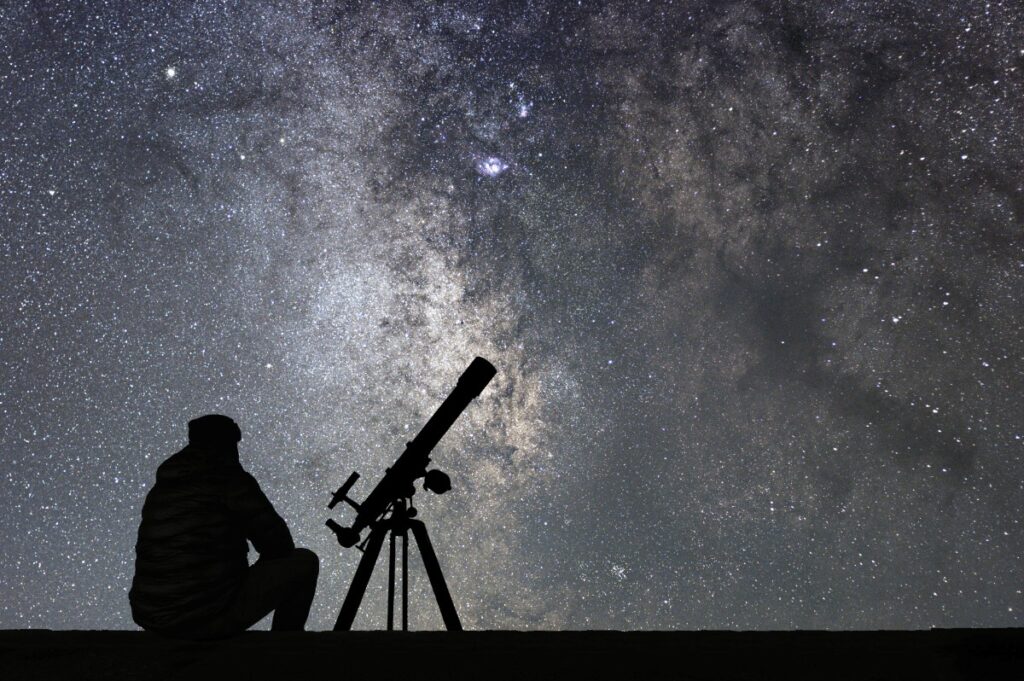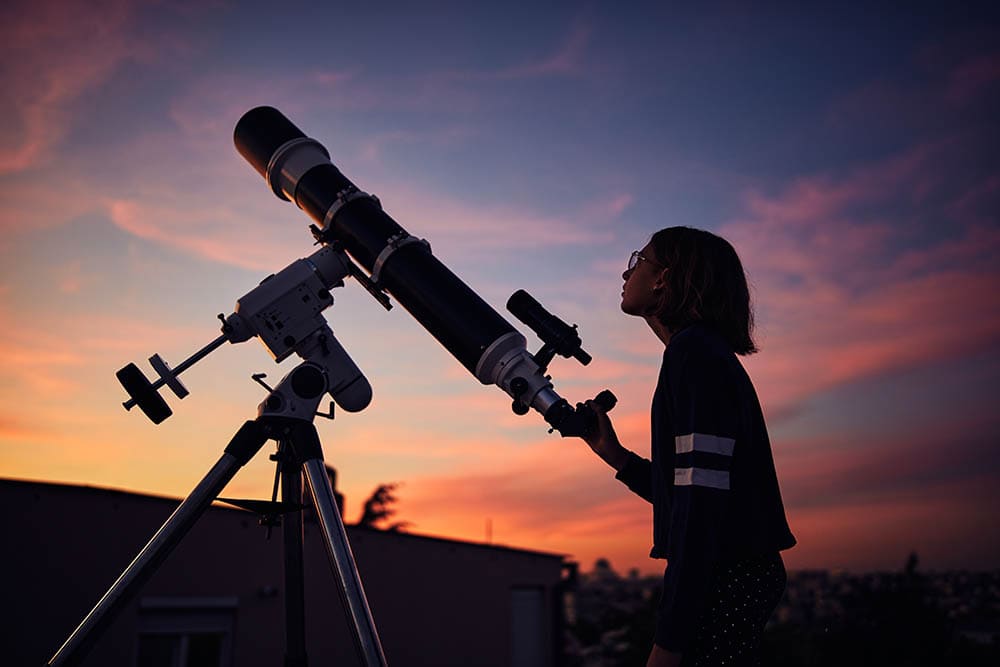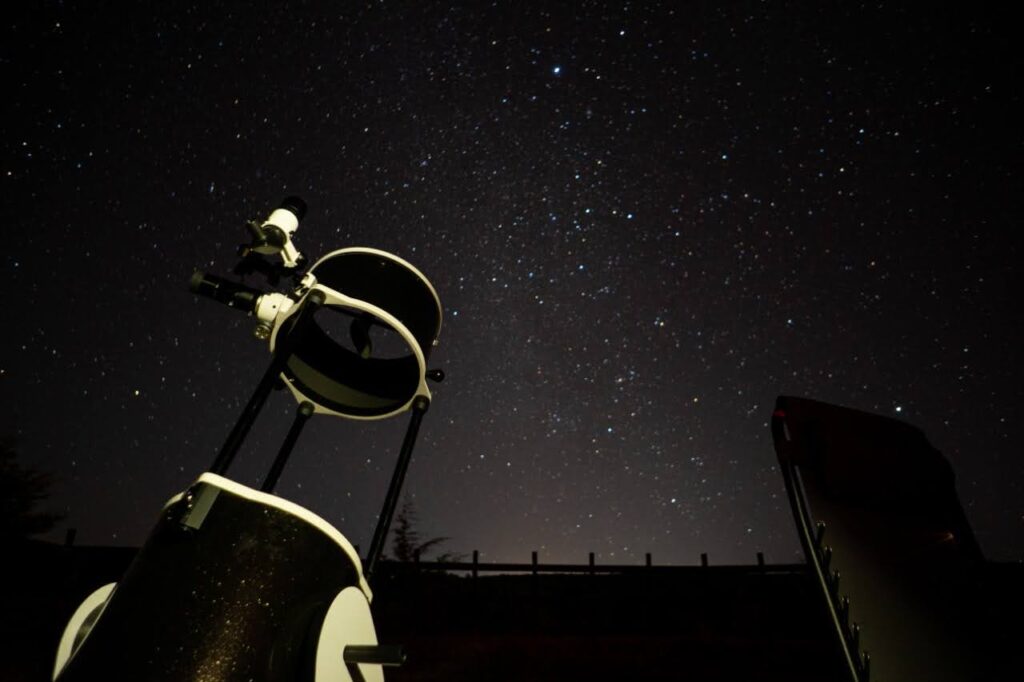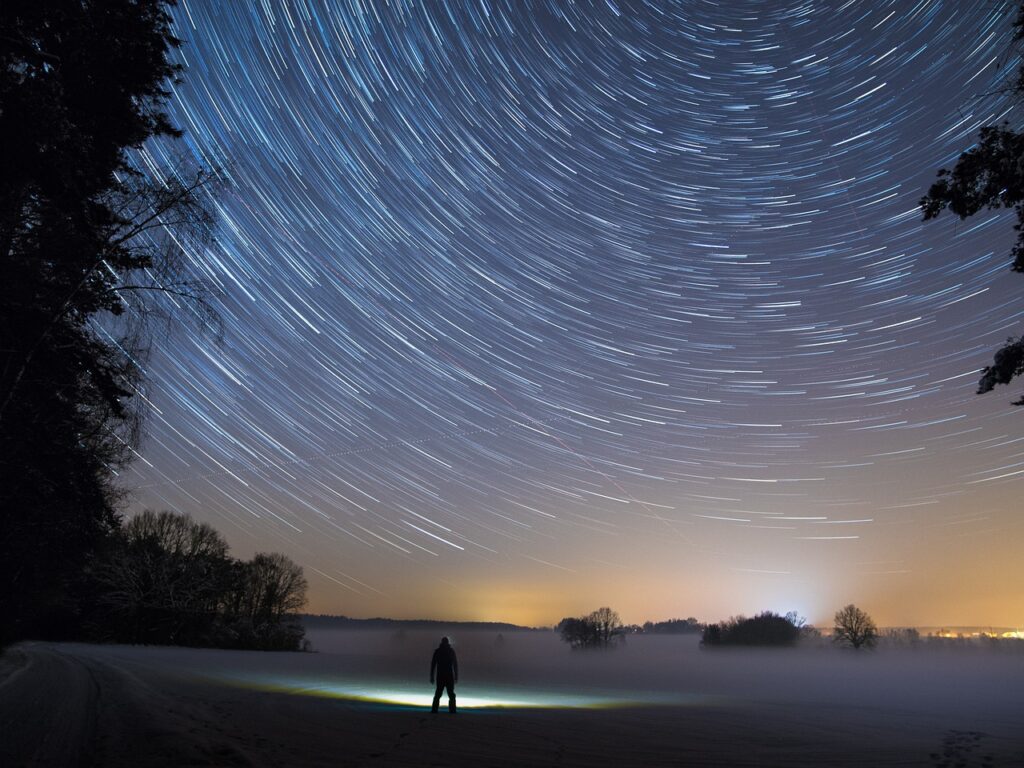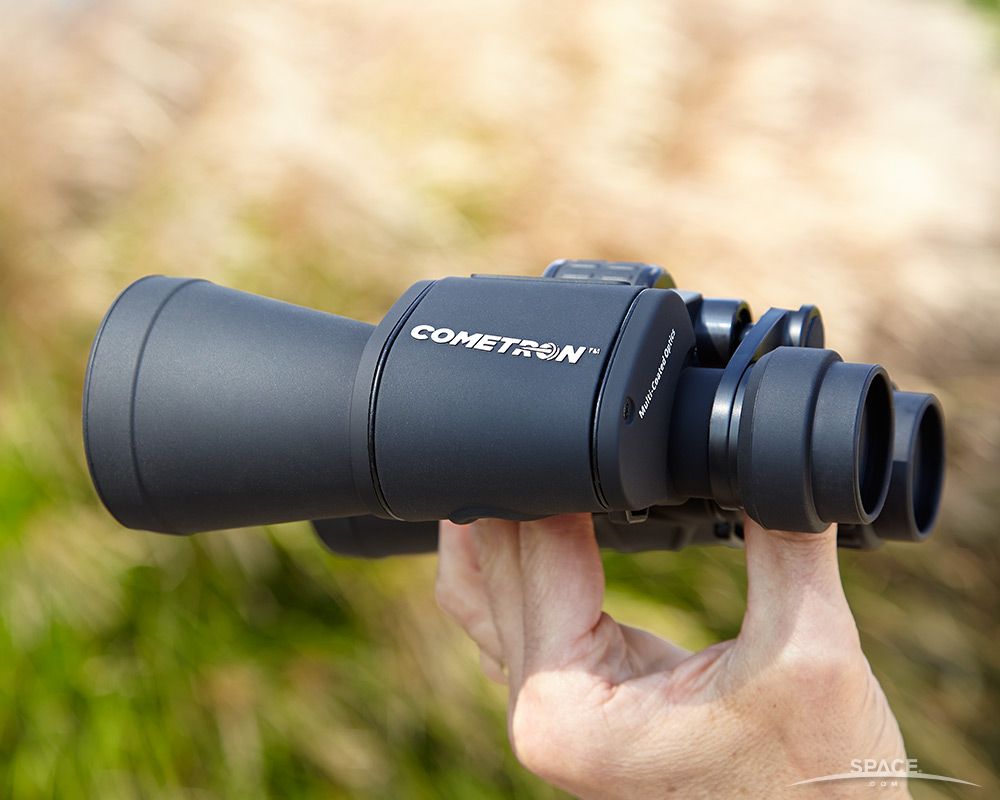Do you want to enter into the fascinating world of astronomy but don't know where to start?
In this article, we present 10 practical tips to start your star journey from scratch and explore the cosmos with confidence.
Get out and Look up!
Direct observation is the first step to becoming familiar with the sky. Go out into dark, clear skies, and take time to gaze at the stars and constellations. With practice, you will learn to locate yourself in space and recognize celestial patterns.
Download an Astronomy App
Mobile apps such as Sky Guide and others, can serve as interactive guides to the sky. Explore constellations, planets and astronomical events from the convenience of your mobile device. It's an interesting and entertaining way to explore the night sky!
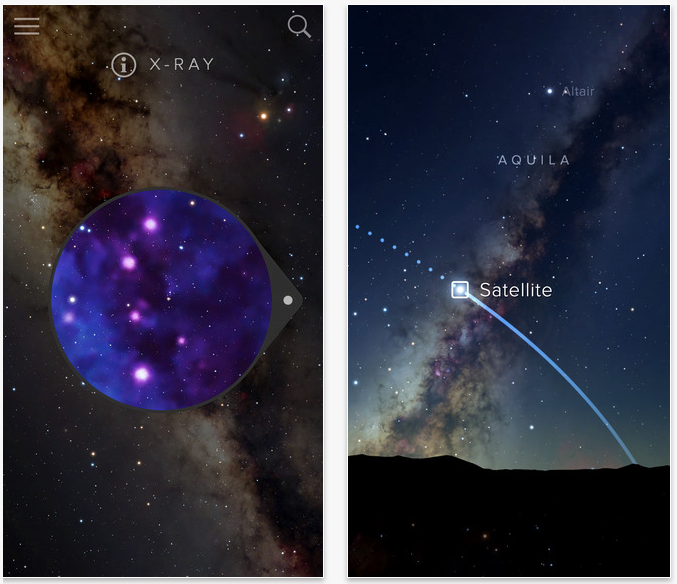
Use a Lunar Calendar
Being aware of the lunar phases will allow you to plan your astronomical observations. New moon nights are ideal for observing faint celestial objects, since lunar light does not interfere with visibility.

4. Escape from Light Pollution
Artificial city lights can make stargazing difficult. Look for places away from light pollution, such as rural areas or natural parks, to enjoy darker, starry skies.

Watch one of our videos about it:
Research and learn about Astronomy and Space
Dive into astronomical knowledge through books, videos and documentaries. Series like "Cosmos" They offer a fascinating introduction to the universe and will help you understand the basic concepts of astronomy.
Watch Episode 1 of “COSMOS” on YouTube:
Use Binoculars
Binoculars can be powerful tools for astronomical observing, allowing you to see details that are not visible to the naked eye. Experiment with different magnifications and explore the sky with a new perspective.
Just click on the image to read more about these Astronomy Binoculars CELESTRON SKY-MASTER 15×70
Visit an Astronomy Club
Connecting with other astronomy enthusiasts gives you the opportunity to share knowledge, experiences and resources. Participate in group activities, such as observing nights, and expand your understanding of the cosmos. Besides You'll be able to use their telescopes before you spend your money on one for yourself. You will know what to expect and what works for you and what you like.
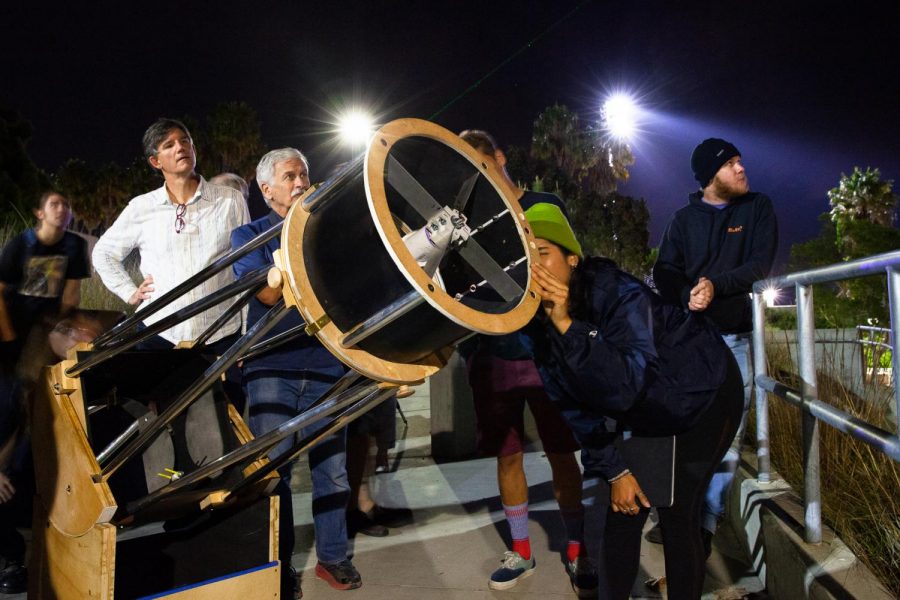
Wrap up well
Observation nights can be cold, especially in outdoor settings away from the city. Dress in warm layers and make sure you are comfortable to extend your viewing time without discomfort.
Learn to Navigate through the Sky
Master the art of star navigation using landmarks like constellations and bright stars. Practice “Star Hopping” to move from one celestial object to another with ease and precision.

Protect you Night Vision
Avoid exposure to bright light during astronomical observing to preserve your night vision. Use red light flashlights and take regular breaks to allow your eyes to adjust to the darkness.
With these 10 tips, you will be ready to get started on the right foot in the world of Astronomy. Remember, astronomy is a universe of discovery and wonder waiting to be explored.
Go Beyond and enjoy the stellar show around us!

